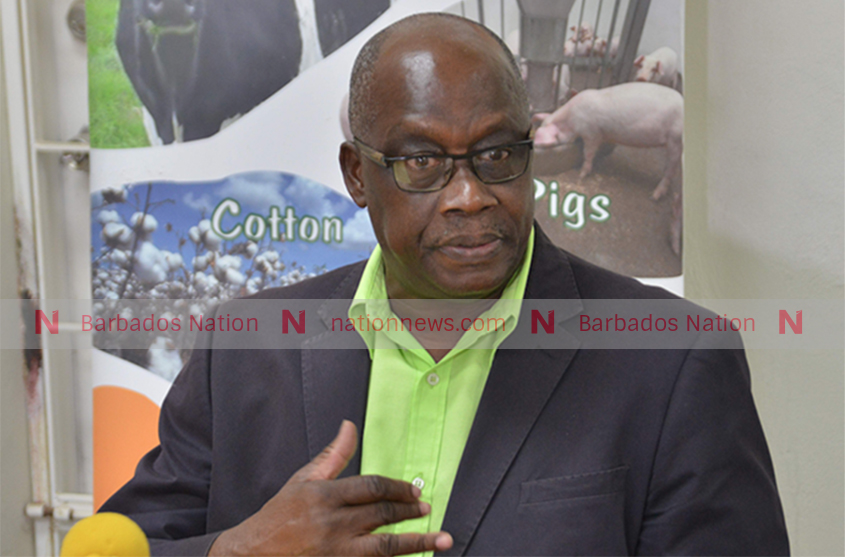

Chief Executive Officer of the Barbados Agricultural Society (BAS), James Paul, is urging Barbadians not to get ruffled by the shortage of fresh chicken on supermarket shelves.
“The fact that some supermarkets are experiencing difficulties at this time, it is not something that is going to be prolonged,” he said, while cautioning against any rush to import poultry.
“It should not be seen as an opportunity to hastily go and arrange the import of any poultry. I want to say that up front,” he said.
Tomlinson Bynoe, director of Carlton and A1 Supermarket, confirmed the shortage, explaining that difficulties in accessing young birds had impacted their ability to meet consumer demand. Anthony Brancker, head of Massy’s retail and distribution sector, also acknowledged the strain on the supply chain.
Paul attributed the supply disruption to problems with hatchability rates but said production levels were increasing.
“As an indicator, Gale’s Hatcheries has reported that farmers have placed over 300 000 more chicks than the same period last year. Now, that is an increase,” he noted.
The BAS head said the challenge might be rooted in an unexpected rise in demand rather than a supply deficiency. He said there had been no clear communication from stakeholders regarding anticipated demand, resulting in a mismatch between the market’s needs and the industry’s output.
Paul also linked the spike in chicken consumption to a decline in fish availability.
“The amount of chicken being consumed certainly seems to be increasing.”
Nevertheless, he assured the public that the industry was committed to stepping up production, particularly as the holiday season approached.
“We are increasing the [number] of chicks that are being placed for hatch. So, production is going up, which is good for us . . . . As far as I’m aware, there is no issue when it comes to supplies at Christmas, and we don’t anticipate it as a problem.
“Farmers are actually increasing the number of chickens that they are producing. They are putting more chicks into the fence and we would not want a situation where there is now a rush to import,” he said.
Paul warned that if imports were allowed, it could create significant difficulties for local poultry farmers.
“We are working through the issues. We are going to work even more closely with the supermarkets to try to make sure, from a long-term basis, that this situation is addressed.” ( CLM)





